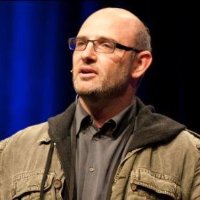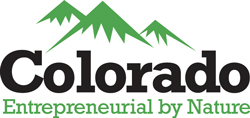INterview with New Tech Boulder-Denver-Fort Collins organizer Robert Reich
Monday October 28, 2013

Robert Reich is a software entrepreneur with 20 years of experience in creating and refining consumer and enterprise software solutions.
He is a named inventor on six patents, a Silicon Flatirons Center advisory board member, mentor at The Unreasonable Institute and has taught a masters level class at CU on startups.
In 2006, he founded New Tech Boulder/Denver, which added Fort Collins in August of this year.
Q: You are the founder/organizer of the state's biggest tech meetup group, New Tech, and you host the Boulder event (Boulder-Denver-Fort Collins), with nearly 10,000 members. This group has grown quite rapidly. Can you tell me why?
A: I've done the following things because I thought they were the right things to do, but I'm not sure I can say any one of them is the reason the group has grown. (Honestly, I think every event is going to be a Peter Brady party, 30 min. before.)
1) It's always been important to me that the community feel like this is their event. For example, I added the Denver event three years ago because the Boulder event was getting too crowded and I thought we needed a bridge between the two areas. After hosting the event myself for a while, I thought it made more sense to have someone from Denver host it. Andrei stood up and has been doing an amazing job ever since.
2) I've tried to lead by example, giving honest and direct feedback to the presenters and encouraging the audience to do the same.
3) I've told the presenters not to sell to the audience and when they start selling, I've asked them to get back on point educating us about their product instead of talking at us.
4) I've tried to keep the event consistent.
5) I've tried to keep the event moving and fun.
6) And then there's the free beer.
Q: The Boulder-Denver area has long been Ground Zero for innovation and technology in Colorado, but Northern Colorado - particularly the Fort Collins-Loveland area - is now coming on strong and recently placed No. 2 on the Kauffman Foundation list of Top 10 metro areas for high-density startup activity, just behind Boulder at No. 1. What's happening up north that's helped bring this about?
A: I believe the economy is changing and the cost of entry to start a high-growth business has dropped as the digital infrastructure connecting us all has become more pervasive.
 Q: What do you hear from the New Tech folks regarding what they would most like to see happen in Colorado - state policy or otherwise -- to help them move their products and ideas into the commercial marketplace?
A: This is a hard question for me to answer. Most of the startups I have started or mentored just want the government to stay out of their way. I do believe local and state government can do a lot more to encourage the creative class, but I do not have specific examples behind make our schools the best in the world, help create affordable housing, create the right tax-incentives and do not do stupid things.
Q:Â What can Colorado do to raise its technology profile to become more attractive to investors and achieve recognition as the "Silicon Valley of the Rockies"?
A: I think it's important that we learn from the all the different communities' successes and failures, but figure out what works for our community. People move to Colorado for different reasons than they would to the Bay Area, for example. We need to celebrate these reasons and let the world know why we do it our way.
 Q: Your New Tech group just launched the Freelancer Search Engine (http://bdnt.org/freelancers). What is it, and how will it help the startup community?
A: As an organizer, I get four questions multiple times per month:
1)Â Â How can I present?
2)Â Â Do you know where I can find full-time talent?
3)Â Â Do you know where I can find X types of skills for a project?
4)Â Â How can I get more exposure for my startup or service?
Over the past 7 years, the organizers of the event have been on the front lines trying to help the community with these requests. We want to help everyone, but we aren't always able to respond in the time frames people need. We run our own companies, have families and do not get paid to organize New Tech. It's 100 percent volunteer.
Last year, I decided to do something about it and started moving the knowledge online, launching http://bdnt.org.
The first thing we did was put up a map showing the hot spots of activity by county. Next, we added a job board and last week we added the Freelancer Search Engine.
The Freelancer Search Engine flips the problem of finding people to work on a project to the employer.
This is accomplished by allowing the freelancer to list his/her skills and say whether or not they are available. A few things happen when you flip responsibility:
1)Â Â Â Â Â The people outside the community can now tap the skills of the New Tech members, saving them days or weeks just trying to locate a freelancer to work on a project.
2)Â Â Â Â Â Most freelancers do not like prospecting for new business. They like doing their craft. The Freelancer Search Engine brings business to them when they need it.
3)Â Â Â Â Â The people in the New Tech community can endorse the skills of the freelancers, and this data is used to rank the order of the people returned -- essentially providing some degree of vetting and honesty for people hiring the freelancers.
It's still early, but I am hopeful the community will find this resource useful. We run New Tech like a startup, so if the usage keeps going up, we know we have something of value. I'm personally a strong believer in experimentation and codifying repeating patterns into systems.
I wish we could move faster, but as I stated earlier, this is an all-volunteer group. We are a community, not a company.












